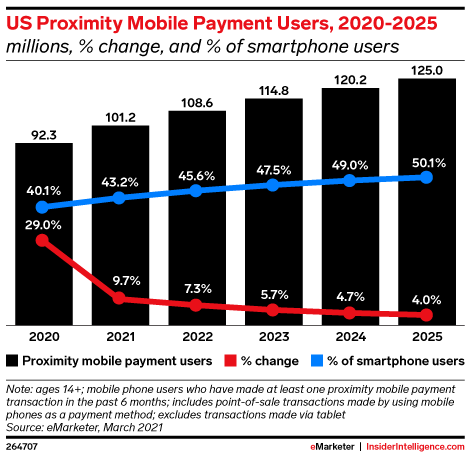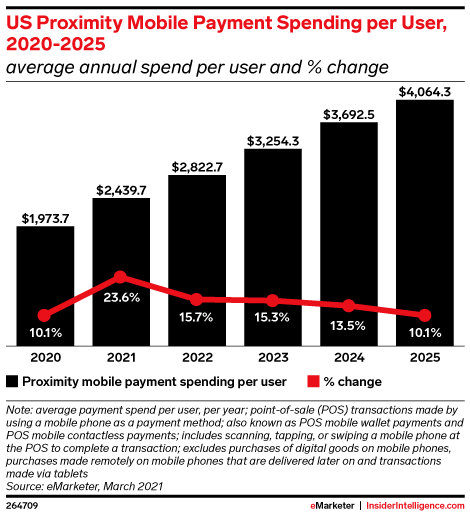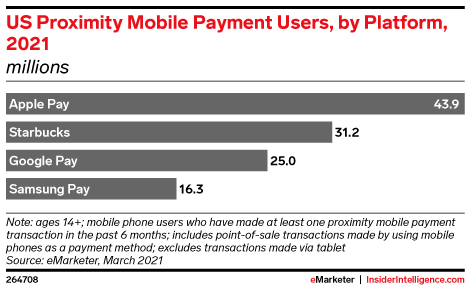TechCrunch Sessions is back! On September 5, we’re taking on the ferociously competitive field of enterprise software, and thrilled to announce our packed agenda, overflowing with some of the biggest names and most exciting startups in the enterprise industry. And you’re in luck, $249 early bird tickets are still on sale — make sure you book yours so you can enjoy all the agenda has to offer.
Throughout the day, you can expect to hear from and partake in discussions about the potential of new technologies like quantum and AI, how to deal with the onslaught of security threats, investing in early-stage startups, and plenty more.
We’ll be joined by some of the biggest names and the smartest and most prescient people in the industry, including Bill McDermott at SAP, Scott Farquhar at Atlassian, Julie Larson-Green at Qualtrics, Wendy Nather at Duo Security, Aaron Levie at Box, and Andrew Ng at Landing AI.
Our agenda showcases some of the powerhouses in the space, but also plenty of smaller teams that are building and debunking fundamental technologies in the industry. We still have a few tricks up our sleeves and will be adding some new names to the agenda over the next month so keep your eyes open. In the meantime, check out these agenda highlights:
AGENDA
Investing with an Eye to the Future
Jason Green (Emergence Capital), Maha Ibrahim (Canaan Partners) and Rebecca Lynn (Canvas Ventures)
9:35 AM – 10:00 AM
In an ever-changing technological landscape, it’s not easy for VCs to know what’s coming next and how to place their bets. Yet, it’s the job of investors to peer around the corner and find the next big thing, whether that’s in AI, serverless, blockchain, edge computing or other emerging technologies. Our panel will look at the challenges of enterprise investing, what they look for in enterprise startups and how they decide where to put their money.
Talking Shop
Scott Farquhar (Atlassian)
10:00 AM – 10:20 AM
With tools like Jira, Bitbucket and Confluence, few companies influence how developers work as much as Atlassian. The company’s co-founder and co-CEO Scott Farquhar will join us to talk about growing his company, how it is bringing its tools to enterprises and what the future of software development in and for the enterprise will look like.
Q&A with Investors
10:20 AM – 10:50 AM
Your chance to ask questions of some of the greatest investors in enterprise.
Innovation Break: Deliver Innovation to the Enterprise
DJ Paoni (SAP), Sanjay Poonen (VMWare) and Shruti Tournatory (Sapphire Ventures)
10:20 AM – 10:40 AM
For startups, the appeal of enterprise clients is not surprising — signing even one or two customers can make an entire business, and it can take just a few hundred to build a $1B unicorn company. But while corporate counterparts increasingly look to the startup community for partnership opportunities, making the jump to enterprise sales is far more complicated than scaling up the strategy startups already use to sell to SMBs or consumers. Hear from leaders who have experienced successes and pitfalls through the process as they address how startups can adapt their strategy with the needs of the enterprise in mind. Sponsored by SAP
Coming Soon!
10:40 AM – 11:00 AM
Box’s Enterprise Journey
Aaron Levie (Box)
11:15 AM – 11:35 AM
Box started life as a consumer file storage company and transformed early on into a successful enterprise SaaS company, focused on content management in the cloud. Levie will talk about what it’s like to travel the entire startup journey — and what the future holds for data platforms.
Bringing the Cloud to the Enterprise
George Brady (Capital One), Byron Deeter (Bessemer Venture Partners) and speaker to be announced
11:35 AM – 12:00 PM
Cloud computing may now seem like the default, but that’s far from true for most enterprises, which often still have tons of legacy software that runs in their own data centers. What does it mean to be all in on the cloud, which is what Capital One recently accomplished. We’ll talk about how companies can make the move to the cloud easier, what not to do, and how to develop a cloud strategy with an eye to the future.
Keeping the Enterprise Secure
Martin Casado (Andreessen Horowitz), Wendy Nather (Duo Security) and speaker to be announced
1:00 PM – 1:25 PM
Enterprises face a litany of threats from both the inside and outside the firewall. Now more than ever, companies — especially startups — have to put security first. From preventing data from leaking to keeping bad actors out of your network, enterprises have it tough. How can you secure the enterprise without slowing growth? We’ll discuss the role of a modern CSO and how to move fast… without breaking things.
Keeping an Enterprise Behemoth on Course
Bill McDermott (SAP)
1:25 PM – 1:45 PM
With over $166 billion is market cap, Germany-based SAP is one of the most valuable tech companies in the world today. Bill McDermott took the leadership in 2014, becoming the first American to hold this position. Since then, he has quickly grown the company, in part thanks to a number of $1B+ acquisitions. We’ll talk to him about his approach to these acquisitions, his strategy for growing the company in a quickly changing market and the state of enterprise software in general.
How Kubernetes Changed Everything
Brendan Burns (Microsoft), Tim Hockin (Google Cloud), Craig McLuckie (VMWare), and Aparna Sinha (Google)
1:45 PM – 2:15 PM
You can’t go to an enterprise conference and not talk Kubernetes, the incredibly popular open source container orchestration project that was incubated at Google. For this panel, we brought together three of the founding members of the Kubernetes team and the current director of product management for the project at Google to talk about the past, present and future of the project and how it has changed how enterprises think about moving to the cloud and developing software.
Innovation Break: Data Who Owns It
(SAP)
2:15 PM – 2:35 PM
Enterprises have historically competed by being closed entities, keeping a closed architecture and innovating internally. When applying this closed approach to the hottest new commodity, data, it simply does not work anymore. But as enterprises, startups and public institutions open themselves up, how open is too open? Hear from leaders who explore data ownership and the questions that need to be answered before the data floodgates are opened. Sponsored by SAP.
AI Stakes its Place in the Enterprise
Bindu Reddy (Reality Engines), Jocelyn Goldfein (Zetta Venture Partners) and speaker to be announced
2:35 PM – 3:00 PM
AI is becoming table stakes for enterprise software as companies increasingly build AI into their tools to help process data faster or make more efficient use of resources. Our panel will talk about the growing role of AI in enterprise for companies big and small.
Q&A with Founders
3:00 PM – 3:30 PM
Your chance to ask questions of some of the greatest startup minds in enterprise technology.
The Trials and Tribulations of Experience Management
Julie Larson-Green (Qualtrics), Peter Reinhardt (Segment) and speaker to be announced
3:15 PM – 3:40 PM
As companies gather more data about their customers, it should theoretically improve the customer experience, buy myriad challenges face companies as they try to pull together information from a variety of vendors across disparate systems, both in the cloud and on prem. How do you pull together a coherent picture of your customers, while respecting their privacy and overcoming the technical challenges? We’ll ask a team of experts to find out.
Innovation Break: Identifying Overhyped Technology Trends
James Allworth (Cloudflare), George Mathew (Kespry), and Max Wessel (SAP)
3:40 PM – 4:00 PM
For innovation-focused businesses, deciding which technology trends are worth immediate investment, which trends are worth keeping on the radar, and which are simply buzzworthy can be a challenging gray area to navigate and may ultimately make or break the future of a business. Hear from these innovation juggernauts as they provide their divergent perspectives on today’s hottest trends, including Blockchain, 5G, AI, VR and more. Sponsored by SAP.
Fireside Chat
Andrew Ng (Landing AI)
4:00 PM – 4:20 PM
Few technologists have been more central to the development of AI in the enterprise than Andrew Ng . With Landing AI and the backing of many top venture firms, Ng has the foundation to develop and launch the AI companies he thinks will be winners. We will talk about where Ng expects to see AI’s biggest impacts across the enterprise.
The Quantum Enterprise
Jim Clarke (Intel), Jay Gambetta (IBM), and Krysta Svore (Microsoft)
4:20 PM – 4:45 PM
While we’re still a few years away from having quantum computers that will fulfill the full promise of this technology, many companies are already starting to experiment with what’s available today. We’ll talk about what startups and enterprises should know about quantum today to prepare for tomorrow.
Overcoming the Data Glut
Benoit Dageville (Snowflake), Ali Ghodsi (Databricks), and speaker to be announced
4:45 PM – 5:10 PM
There is certainly no shortage of data in the enterprise these days. The question is how do you process it and put it in shape to understand it and make better decisions? Our panel will discuss the challenges of data management and visualization in a shifting technological landscape where the term ‘big data’ doesn’t begin to do the growing volume justice.
Early bird tickets are on sale now for just $249. That’s a $100 savings before prices go up – book yours today.
Students save big with our super discounted $75 ticket when you book here.
Are you a startup, book a demo table package for just $2000 (includes 4 tickets) – book here.



